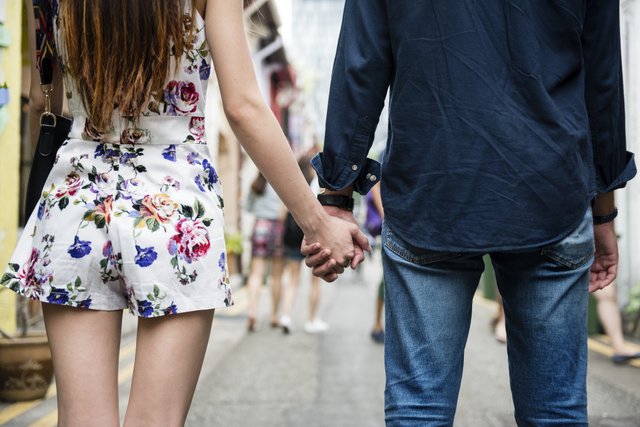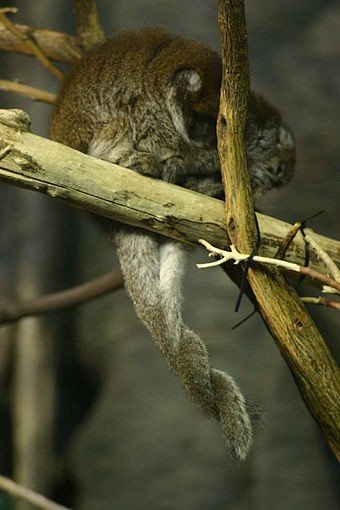Are Humans ‘Naturally’ Monogamous? And Does It Matter?
The last four books I’ve read have been about evolutionary biology and evolutionary sociobiology.
- Sapiens: A Brief History of Humankind by Yuval Noah Harari
- The Selfish Gene by Richard Dawkins
- Sex at Dawn by Christopher Ryan and Cacilda Jethà
- Sex at Dusk: Lifting the Shiny Wrapping from Sex at Dawn by Lynn Saxon
After reading Sapiens and the Selfish Gene, I had a layman’s understanding of evolution and the way natural selection works on genes. As relationship structures (monogamy, nonmonogamy, and polyamory) have been an interest of mine lately, I decided to read Sex at Dawn, a landmark work that discusses the evolution of human sexuality. And since not every academic agrees on the legitimacy of the work, I decided to read a criticism of it as well called Sex at Dusk.
Reading four books about sexuality and biology gave me a pretty solid understanding of the biological urge for sex and it’s purpose as part of the human organism.
And here’s what I learned: Monogamy is natural for humans (for the most part), but that doesn’t make it the best.
If Monogamy is Natural, Why Is It So Hard?
Before we talk about why monogamy is natural for humans, there are two things you need to understand in humans:
- The traits selected for an organism by evolution don’t always make the organism happy. The traits that evolve in a population are the ones that are the best at getting genes passed on to the next population, not the ones that make the body of those genes the happiest. Whatever trait gets genes into the next generation wins.
The success of the ‘selfish genes’ not only comes at a cost to others but… it is not uncommonly gained at the expense of the health of that body in which those very genes currently reside.
Saxon, Lynn. Sex at Dusk: Lifting the Shiny Wrapping from Sex at Dawn (p. 306). CreateSpace. Kindle Edition.
- The ‘evolutionary goals’ of males and females in any species are opposed to each other in almost every species. This results in something called sexual conflict. Basically, the problem is this: females have a fixed amount of eggs, so they want to ensure the best matches possible for those eggs. Males have theoretically unlimited sperm, so their goal is to spread it as far and wide as possible.
The best policy for such a (living organism) will often be one thing if it is male, and quite a different thing if it is female.
Dawkins, Richard. The Selfish Gene: 40th Anniversary edition (Oxford Landmark Science) (p. 189). OUP Oxford. Kindle Edition.
These two facts lead to a lot of unpleasant evolutionary traits that are good for the genes, but are bad for the bodies that house those genes.
- Female anglerfish are much larger than male anglerfish. When they mate, the male anglerfish fuses with the female body, becoming little more than a set of testes attached to the female.
- Many female spiders bite the head off the males while mating.
It’s an error in thought to assign emotions to non-human species because we have no reason to believe that they have feelings like humans do. But if they did, I’ll bet their feelings are that they don’t want to get decapitated by their lover. Dying after mating is not making them happy. As we talk about human evolution, we need to keep in mind that what is natural for a human is not always what will make them happiest.
Back to humans
Yes, monogamy is ‘natural’ for humans. But in the case of humans, monogamy doesn’t mean sexual desire that is limited to one person. Humans evolved to be ‘socially monogamous,’ meaning that we choose one partner with which we pair-bond while retaining a desire for other sexual partners.
But here’s the rub: We evolved to desire other sexual partners, while keeping our bonded partner from having other sexual partners at the same time. We want to copulate with other sexual partners, but at the same time feel intense jealousy and possessiveness over our bonded partners.
Essentially, humans evolved to be cheaters.
The monogamous animal is one that spends most of its time with one mate but is not entirely faithful, points out Insel. Most monogamous animals will, on occasion, mate with a stranger, he says.
Saxon, Lynn. Sex at Dusk: Lifting the Shiny Wrapping from Sex at Dawn (p. 183). CreateSpace. Kindle Edition.
Humans aren’t the only creatures that evolved this way. Titi monkeys sleep with their tails curled together with their pair-bonded partner.
Cute, right?
Except that they evolved to do this to keep their partner away from other mates, not because they’re ‘just so in love.’
Breaking it Down: Why Are We Monogamous?
We evolved to be socially monogamous because human babies are particularly helpless. They require two humans (or more) dedicated just to raising them, due to their high caloric needs and the fact that they need to be carried in the arms of the mother and nursed for a very long time.
But pair-bonding evolved in humans for other reasons, too. Pair-bonding made male competition for mates a much less violent affair. Most primates exist in small groups led by males due to male conflict. Monogamous pair-bonds allowed ancient human males to coexist peacefully. The families of the pair-bonded partners came together as a band. The group working together was able to gather many more resources than just two individual humans traveling together.
Polygyny, the practice of one man having multiple bonded female partners, has most of the benefit of monogamy. But since a minority of males are getting a majority of the females in this system, it leads to increased male-male conflict. In addition, each female gets a smaller slice of male time and resources, leading to female-female conflict. This probably contributed to females leaving the male harem to find an individual male who would stay dedicated to her.
But Why Do We Have Trouble With It?
At the same time, individual humans were still under evolutionary pressure to find the best mate, the one that will produce the best offspring. And when sexual candidates pair off into monogamy, the best mates can become unavailable.
The way this plays out for males and females is slightly different. For females, the best thing to do is to get a worse male bonded and committed, i.e. bringing meat or other resources, then sneak off to make sure the better male is the actual father of her offspring. These additional males may also provide gifts and resources like the primary male, further providing for the female’s survival.
For men, of course, the goal is simply to sleep with as many of the females as possible, taken or not.
Many people report being turned on by sexual novelty; this is called the Coolidge effect, a neologism based on a fictional story about President Coolidge. Predictably, it is stronger in men than in women (but still present in women). Perhaps this is why.
Some monogamous partnerships among primitive humans were lifelong, but it’s just as likely that they were serially monogamous, i.e. switching partners after each breeding period (around 4 years for a primitive human child to reach maturity). So, in addition to keeping an eye out for additional sexual partners, males and females also kept an eye out for their next bonded partner.
What this means is that no one can moralize about what ‘the right way’ for humans to be is. No one can stand on a pedestal and say “Polyamory is the natural way to be,” or “humans are meant to be monogamous.” The natural way, the one we evolved for, is in a best-case scenario a string of multi-year relationships with children scattered behind you like detritus. The worst case scenario is chronic betrayal.
This presents a problem for modern humans. We don’t want to be cheaters. Those of us who want to make monogamous commitments want to keep those commitments happily. Those of us who want to be non-monogamous or polyamorous want to do so in a way that causes everyone involved happiness, not pain. But our evolutionary history drives us to be cheaters, giving us the mutually incompatible feelings of jealousy and possessiveness in a relationship, while also driving us to feel penned in by monogamy.
This is compounded by the fact that the pressures that selected for abandonment and betrayal aren’t even present in the West anymore. The primary reason people in the West have sex isn’t to reproduce but to bond with other people, or enjoy the physical sensations of sexuality. The instinctual pressure on men to ‘notch their belt’ and on women to ‘rope a man in’ are anachronistic in a society with mass-produced birth control, women’s rights, adoption, and artificial insemination.
What’s more, we don’t have the same fixation with passing on genes that wild animals (or primitive humans) do. People in the West don’t make passing on their genes a priority. Humans often choose not to have children, or to foster or adopt children that don’t share their genes at all.
Like in so many other things, we find ourselves in a modern world with pressures and goals our instincts just aren’t prepared for. What we need to do is, instead of appealing to what’s ‘natural’ for our bodies, we need to decide what’s best for them.
The first thing to do, I think, is to accept that whatever we choose, there is going to be a trade-off. If we choose to be monogamous, we are choosing to deal with the pangs of sexual urges left unfulfilled. If we choose to be serially monogamous, we are choosing to deal with the fact that we are always going to be managing a train of people who come in and out of our lives. If we choose polyamory, we are going to deal with jealousy. And if we choose to be single, we are going to deal with loneliness.
There is flexibility within these options; you can choose to be monogamish, or to have a closed polyamory network. You may decide flirting with someone is all right, but not sealing the deal. Whatever configuration you choose, there are going to be trade-offs. There is no perfect option without emotional turmoil; this is the choice our biology has left us.
The second thing to do is accept that not everyone is going to want the same thing. Some people find monogamy to be sexually boring and stifling; others feel that they can only fully express their sexuality in the context of an exclusive partnership. The degree to which people have an extra-pair mating urge will vary between individuals, just like sexual orientation and drive does. In addition, cultural influences work on humans in a way they don’t on any other species, and the way we grew up will almost certainly have a permanent effect on our attitudes about these things in adulthood.
So what should we do?
Unfortunately, it looks like the answer is different for everyone. Meaning, of course, that we have to figure out what’s best for us ourselves.
And how do we do that?
I’ll let you know when I figure it out.


To the question in your title, my Magic 8-Ball says:
Hi! I'm a bot, and this answer was posted automatically. Check this post out for more information.